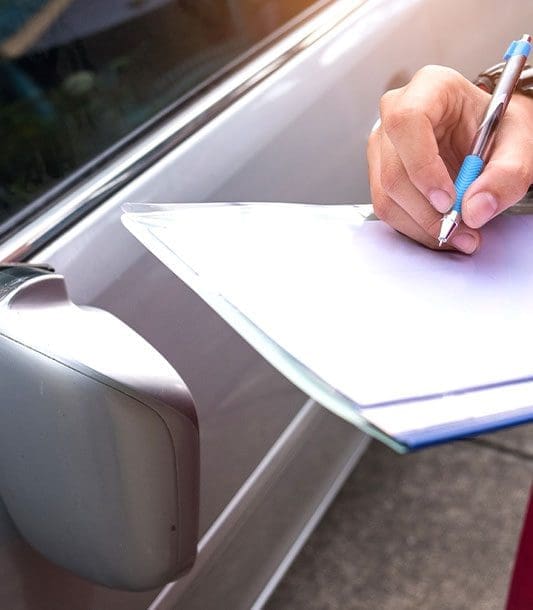Personal injury medical claim
In addition to filing an accident claim with your auto insurer, you’ll also want to file a personal injury medical claim after your accident. This is crucial because filing an auto accident claim will only cover the costs of damage to your vehicle, not injury. A personal injury claim needs to be filed with the insurance agency so that you will be covered for the costs of medical bills from treatment that followed your accident.
To receive the benefits of a personal injury claim, you’ll have to file a personal injury protection (PIP) form with your insurance agency. You can do this online or at your state’s department of transportation service centers. If you have any questions along the way, reach out to our staff who are all trained in how to help you with this process.
How personal injury protection works
Personal injury protection will cover the costs of treatment from your chiropractor and other medical providers like hospitals and doctors. PIP will also cover you for other expenses resulting from your injury. This includes lost income, at-home care, daycare, transportation costs, and more.
If you own a car and have car insurance for it, then your auto insurance company has to cover the cost of medical expenses by law, regardless of fault. Also, if you don’t have auto insurance but a family member who lives in your household does, then that person’s auto insurance will also cover you. Also, in that case, the premiums will not increase for the family member.
Making sure to file a personal injury claim is an important step in receiving the benefits you require to get full medical treatment after an auto accident.
Will a personal injury claim raise your premium?
If you file a personal injury claim, your insurance will not increase as a result. Every state’s statute of limitations regarding claims is different. In Oregon, it is two years. In addition, if you wait even a couple of months to seek the benefits from your claim, your insurance company may argue that because you waited, your injuries must not be serious or related to the accident, and they may deny you coverage as a result. Therefore, file a claim as soon as you can after an auto accident to receive full benefits and coverage.
Reach out to your insurance company
After your accident, reach out to your insurance company to inquire about your individual policy to see what’s covered. Also, keep in mind that we have billing specialists that can help you along the way and communicate with your insurance company to make sure you’re covered.
Why see a chiropractor after a car accident?
Medical emergencies and broken bones aren’t the only injuries that are sustained in car accidents. Even the mildest injuries can negatively impact your quality of life, which is why it is essential that you receive chiropractic care after being in a car crash.
A chiropractor will conduct a thorough scan of your body using imaging tools and body scans. This will help them to accurately diagnose your problems and determine how severe your injuries are. The chiropractor may even uncover injuries that you are unaware of. Plus, they can help you to regain mobility in your movement in the body and reduce chronic pain, all while helping to heal the injury.
Furthermore, lawyers often recommend that their clients should see a chiropractor after an accident. This is because chiropractors can find and diagnose all kinds of injuries and they provide thorough documentation of all appointments and treatment, which makes receiving insurance coverage easier.
Keep in mind that you should seek medical care after an accident, regardless of how you feel. Sometimes injuries can take time to manifest, and if you get care soon after the injury, it may be easier to treat and heal. Furthermore, if you don’t get treatment within two months, your insurance provider may deny you coverage, stating that it’s not accident-related.
How a chiropractor can help your case
Seeing a chiropractor after an accident will ensure that no problems go undiagnosed. As mentioned earlier, you may have sustained injuries from your accident that aren’t readily apparent to you. And if you were to wait until the injury got worse, you may not be covered.

